
Michael Long1
Professor of Sociology and Director of the Center for Insecurity and Inequality Research, Oklahoma State University
Michael Long is Professor of Sociology and Director of the Center for Insecurity and Inequality Research (CIIR) at OSU. He is the author/co-author of seven books and over 100 journal articles and book chapters primarily in the areas of environmental sociology, green criminology, sustainability, food insecurity, public health, and quantitative methodology. Michael has received funding from the National Science Foundation, US Department of Agriculture, the British Academy, among others for his research. Michael is co-editor (with Andrew Fullerton, Kelley Sittner, and Rachel Schmitz) of Social Problems. He is a former co-editor of The Sociological Quarterly and the lead co-editor of the Handbook on Inequality and the Environment (2023, Edward Elgar).
Less ![]()
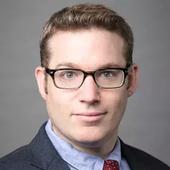
Michael Luca
Director, Technology and Society Initiative, Carey Business School, Johns Hopkins University
Less ![]()

Michael Mantzios
Professor of Applied and Experimental Psychology, Birmingham City University
Michael is a Principal Fellow of the Higher Education Academy, leading initiatives to improve students’ wellbeing, and aims to enhance student academic and employment prospects. Apart from his passion for utilising evidence-based practices in Higher Education, he also works on research projects related to obesity, eating behaviours, mindful eating, mindfulness, self-compassion, philotimo and colouring books. His primary research focus is on mindful eating. He is working on multiple research projects on psychological tools and interventions to enhance health and wellbeing, and teaches several topics in Psychology. He currently holds a position as a Professor in Applied and Experimental Psychology at Birmingham City University.
In previous years, Michael worked as a practitioner at a Military Psychiatric Unit and different military bases, and prior to this volunteered at counselling and educational organisations.
Less ![]()

Michael Massey
Assistant Professor, National Catholic School of Social Service, Catholic University of America
Michael Massey is currently an Assistant Professor at the National Catholic School of Social Service at the Catholic University of America and teaches courses in social justice, diversity, human behavior, and social policy. His research interests include the school to prison pipeline, racial equity in education, antiracist practice in schools and other organizations, antiracist social work practice, and critical race theory (CRT) applications to policy and practice. His previous work in k-12 school settings, mostly as a school counselor, led to a desire to study and better understand the ways that school policies and practices promote or create barriers to educational equity. As such, he has conducted research that examine the processes that lead to racial disciplinary disparities in schools and suggest school policies that are targeted to eliminate racial hierarchy. His scholarship also extends to antiracist pedagogy in higher education and social work policy practice. Dr. Massey’s areas of expertise include the school to prison pipeline, critical race theory, racial disparities in school discipline, preventative and restorative approaches to school discipline, and antiracist teaching approaches in higher education.
Less ![]()
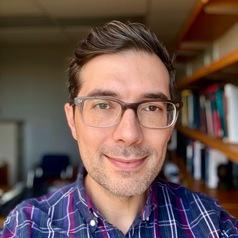
Michael Mattioli
Professor of Law and Louis F. Niezer Faculty Fellow, Indiana University
Michael Mattioli is a Professor of Law at the Indiana University Maurer School of Law in Bloomington. His research focuses on technology, public policy, and ethnography.
Mattioli’s scholarship and commentary have been published in leading academic journals, books, and periodicals. He co-edited Big Data is Not a Monolith, published by the MIT Press in 2016. In 2018, Indiana University honored Mattioli with a Trustees Teaching Award.
A graduate of the University of Pennsylvania Law School and Tufts University, Mattioli has held fellowship appointments at Berkeley Law and Michigan Law - both funded by Microsoft Corporation. Before attending law school, he worked as a microchip designer at Sun Microsystems.
Less ![]()
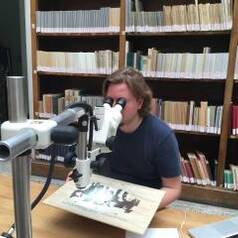
Michael McOsker
Research Fellow in Papyrology, UCL
After a BA in Classics, I did my PhD at the University of Michigan (USA) on the poetics of Philodemus of Gadara (On the Good Poem According to Philodemus, Oxford 2021) and, with David Armstrong (emeritus, University of Texas at Austin) edited Philodemus’ On Anger with an introduction and the first English translation (SBL 2020). Since then, my work has focused on literary and Herculaneum papyrology, Greek stylistics, and the reception of Greek thought by the Romans. Most recently, I was an Alexander von Humboldt fellow at the Universität zu Köln.
My research interests include literary and Herculaneum papyrology, Hellenistic Philosophy (and its reception in Latin literature), and Greek literature
Less ![]()

Michael McQuarrie
Director of the Center for Work and Democracy, Arizona State University
Michael McQuarrie is a sociologist at Arizona State University where he directs the Center for Work and Democracy and acts as an Associate Professor in the School of Social Transformation. The main purpose of his work at the Center for Work and Democracy is to address the exclusion of working people from the polity and the marginalization of their voices in their communities and workplaces. In particular, the Center is concerned with the institutional, organizational, and political dimensions of marginalization and empowerment.
McQuarrie’s own research concerns are protest and politics, governance, organizations, civil society, and political culture. He is currently conducting ethnographic research in George Floyd Square, the autonomous zone at the site where George Floyd was murdered on May, 25, 2020. Other projects include: place and politics, urban governance, social movement repertoires, and the politicization of care. McQuarrie teaches classes on populism and right-wing authoritarianism, social movements, social change organizations, political sociology, urban sociology, and care and social solidarity. He has conducted qualitative research around the world, including in New York, Cleveland, Mumbai, London, Berlin, Nottingham, and Minneapolis.
Prior to arriving at Arizona State, he held appointments at the London School of Economics and Political Science, and the University of California, Davis. McQuarrie has a Ph.D in sociology from New York University and a Masters in history from Duke University. Prior to starting his doctoral work at NYU, he worked as a labor organizer in West Virginia, Ohio, and New York, and he worked as a community organizer in the South Bronx.
Less ![]()
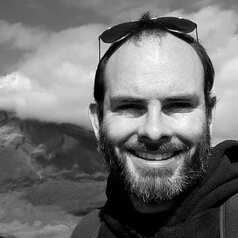
Michael Miller
PhD Candidate, School of Information Management, Te Herenga Waka — Victoria University of Wellington
Prior to commencing his PhD research, Michael worked for several years as an educator, teaching STEM subjects at secondary school and polytechnic levels. He holds a Bachelor of Science in Mathematics and Physics, and a Master of Science in Physics, both from Victoria University of Wellington. His master's thesis, completed in 2012, focused on the mathematical modelling of gravitational microlensing events. Michael has genealogical affiliations to Ngāti Tūwharetoa.
Less ![]()
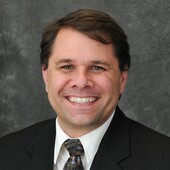
Michael Moats
Professor of Metallurgical Engineering, Missouri University of Science and Technology
Less ![]()
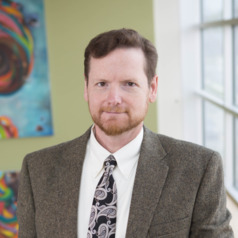
Michael Moody
Chair for Family Philanthropy, Grand Valley State University
Michael Moody joined the Johnson Center in 2010 as the Frey Foundation Chair for Family Philanthropy, the world’s first endowed chair for family philanthropy. In this role, Michael pursues a comprehensive, international program of applied research, training, and other activities to lift up family philanthropy.
Trained as a cultural sociologist, Michael has served as an accessible guide to the rapidly evolving and complex world of philanthropy and social innovation for over 30 years, helping diverse audiences see the vital role that giving plays in society and in their own lives.
Michael is co-author of the books Understanding Philanthropy: Its Meaning and Mission, The Philanthropy Reader, and Generation Impact: How Next Gen Donors Are Revolutionizing Giving, as well as a variety of other publications. Michael is a frequent speaker at venues across the U.S. and worldwide, and a sought-after commentator on philanthropic trends and research. His work has been featured in the New York Times, Washington Post, Forbes, Chronicle of Philanthropy, Stanford Social Innovation Review, and elsewhere.
Previously, Michael was one of the first employees of Indiana University’s renowned Center on Philanthropy, held faculty positions at Boston University and the University of Southern California, and ran Moody Philanthropic Consulting. Michael holds degrees from Indiana University and the University of Chicago, and a doctorate in sociology from Princeton.
Less ![]()

Michael Murphy1
Banting Postdoctoral Fellow, Political Science, Queen's University, Ontario
PhD in Political Science (2022); MA in Political and Legal Thought (2017); HBSocSc in Political Science (2016)
Teaching experience in: International Relations, Political Theory, Canadian Politics, Climate Change
Less ![]()
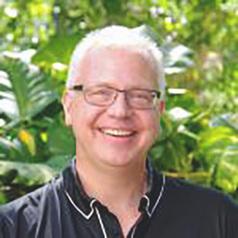
Michael Muszynski
Associate Professor in Tropical Plant and Soil Sciences, University of Hawaii
My research program focuses on deciphering the molecular mechanisms that control plant development using genetic, molecular and genomic approaches. We use maize as a model system and integrate genetic, genomic, molecular, bioinformatic, histological and physiological studies conducted in the field, green house and molecular lab.
My research projects are multi-scale, ranging from dissecting the structure-function relationships of a plant hormone receptor protein, to defining the gene expression networks acting at cellular scales in defined plant tissues, to determining the molecular mechanisms by which different plant hormone pathways interact to control overall organ (leaf) growth.
We use maize as a model system and integrate genetic, genomic, molecular, bioinformatic, histological and physiological studies conducted in the field, green house and molecular lab.
Less ![]()

Michael Nagel
Associate Professor - Child Development and Learning, University of the Sunshine Coast
Less ![]()
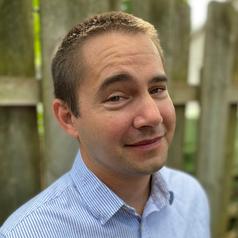
Michael Naparstek
Lecturer in Religious Studies, University of Tennessee
I study Chinese religions with a focus on Daoist ritual and art. In particular, my work on exorcistic thunder deities shows how the study of visual and material cultures in Asian religions contributes to the broader discourse of presence and object agency.
Less ![]()

Michael Naylor
Senior Lecturer in Economics, Massey University
Michael has lectured in New Zealand, Singapore and Malaysia, as well as working in distribution, international trade, and economic consultancy. Michael's main research interest is asset market dynamics; including market crises, currency hedging, ETFs, international financial management, exchange rate dynamics, complex networks and econophysics. He also has research interests in insurance, technological disruption, financial planning, and international investment. He has published in internationally respected academic journals.He is the author of a widely read book on the technologocal transformnation of insurance.
Less ![]()

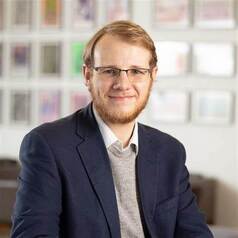
Michael Nower
Assistant Professor in Economics, Durham University
Michael is an Assistant Professor in Economics and Programme Director for the Philosophy, Politics and Economics and Economics and Politics Programmes at Durham University.
Previously he was a Lecturer in Economics and a Post-Doctoral Research Associate for the Durham University Research Impact Fund and Durham University Faculty of Business funded project: 'Future UK Trade Arrangements: Potential Impact on the UK Economy', having completed his PhD in Economics at Durham in 2019.
Less ![]()
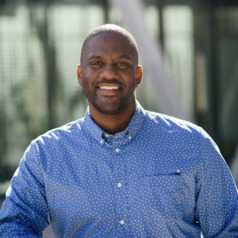
Michael O'Bryan
Distinguished Research Fellow at Lindy Institute for Urban Innovation, Drexel University
Michael O’Bryan is the founder and CEO of humanature, a business management consulting firm, and is a dedicated practitioner and researcher in the fields of community development, organizational culture, and human well-being. His work, fueled by the intersections of developmental science and design, resonates in both the public and private sectors. Notable clients such as Neighborworks America, Campbell Soup Foundation, and The Federal Reserve Bank of Philadelphia have benefited from his human-centered approach.
At Drexel University’s Lindy Institute for Urban Innovation, he leads a design studio focused on centering humanity in the future of work, economic development, and wealth building. His flagship project, The Future of Work Coalition, is cultivating public-private collaboration for jobs that produce family-thriving wages and benefits that generate assets. Michael is the co-author of "Connected Community: A Trauma Informed Community Engagement Toolkit," and a lecturer at The Weitzman School of Design at the University of Pennsylvania, sharing insights on community engagement and design research.
Beyond his work endeavors, he is proud to serve on the boards of three local philanthropic institutions: The Samuel S. Fels Fund, The Union Benevolent Association, and The Philadelphia Cultural Fund. In recognition of his work and service Michael was awarded the Diversity in Business Award from The Philadelphia Business Journal and the Promise Leader Award from Worldmaker International.
Less ![]()
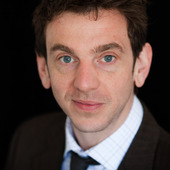
Michael Parker2
Membership Editor, The Conversation UK
Part of the team that launched The Conversation in the UK in 2013, Michael has been its environment + energy editor, technology editor, and is now membership editor managing the membership. Previously he was for 10 years a news and features journalist covering everything from crime to culture for British newspapers and magazines, latterly Associate Editor at The Big Issue in London.
Less ![]()
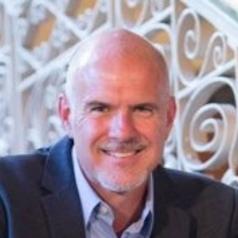
Michael Platt
Professor of Marketing and Psychology and Neuroscience, University of Pennsylvania
Michael is known for asking some of the most challenging questions in 21st century neuroscience—and conceiving innovative ways to find the answers.
His principal questions focus on the biological mechanisms that underlie decision-making in social environments, the grasp of which has broad-scale implications for improving health and welfare in societies worldwide.
Michael's unquenchable quest for answers has led him outside the traditional boundaries of neuroscience: his broad expertise in psychology, economics, evolutionary biology, and ethology, in addition to his collaborations with colleagues in these fields, have enabled him to reach ever-deeper levels of understanding about the neural bases of cognitive behavior.
Michael's pioneering of the field goes beyond breaching its boundaries: he was among the small cadre of scientists who first rejected the long-held idea that decision-making is a reactive sensory-motor process. Instead, he adopted an economic-mathematical approach to studying its physiology, setting a precedent that has changed standard practice in the field. His particular quantitative approach has established a more realistic method of inquiry that yields improved analyses of data sets in brain research.
Less ![]()
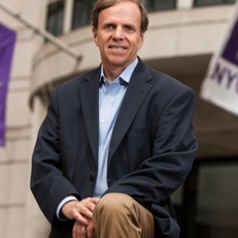
Michael Posner
Co-director of the NYU Center for Business and Human Rights and the Jerome Kohlberg Professor of Ethics and Finance at NYU Stern, New York University Stern Center for Business and Human Rights
Michael H. Posner is the Jerome Kohlberg Professor of Ethics and Finance and a Professor of Business and Society at NYU's Stern School of Business, where he is working to launch the first-ever center on business and human rights at a business school. Prior to joining NYU Stern, Posner served from 2009 to 2013 in the Obama Administration as Assistant Secretary of State for the Bureau of Democracy, Human Rights and Labor at the State Department. From 1978 to 2009, he led Human Rights First, a New York-based human rights advocacy organization.
Posner is recognized as a leader and expert in advancing a rights-based approach to national security, challenging the practice of torture, combating discrimination, and refugee protection. He is a frequent public commentator on these issues, and has testified dozens of times before the U.S. Congress. As Assistant Secretary, Posner traveled extensively, representing the U.S. Government to foreign officials and representatives of civil society in countries of strategic importance to the United States, including China, Russia, Egypt, Burma, Bahrain, Nigeria, Afghanistan, and Pakistan, among many others.
Throughout his career, Posner has been a prominent voice in support of human rights protections in global business operations in the manufacturing supply chain, the extractives industry, and the information and communications technology sector. As a member of the White House Apparel Industry Partnership Task Force in the mid-'90s, he helped found the Fair Labor Association (FLA), an organization that brings together corporations, local leaders, universities, and NGOs to promote corporate accountability for working conditions in the apparel industry. He was a founding member of the Global Network Initiative, a multi-stakeholder initiative aimed at promoting free expression and privacy rights on the Internet, and has spoken widely on the issue of Internet freedom. Posner spearheaded the U.S. Government's efforts to enhance the effectiveness of the Voluntary Principles on Security and Human Rights, which works to improve human rights around oil, gas, and mining operations.
Posner played a key role in proposing and campaigning for the first U.S. law providing for political asylum, which became part of the Refugee Act of 1980, as well as the Torture Victim Protection Act, which was adopted in 1992. In 1998, he led the Human Rights First delegation to the Rome conference at which the statute of the International Criminal Court (ICC) was adopted.
Before joining Human Rights First, Posner was a lawyer with Sonnenschein, Nath & Rosenthal in Chicago. He lectured at Yale Law School from 1981 to 1984, and again in 2009, when he taught with former Dean Harold Koh. He was a visiting lecturer at Columbia University Law School from 1984 to 2008. A member of the California Bar and the Illinois Bar, he received his J.D. from the University of California, Berkeley Law School (Boalt Hall) in 1975, and a B.A. with distinction and honors in History from the University of Michigan in 1972. Posner resides with his family in New York City.
Less ![]()
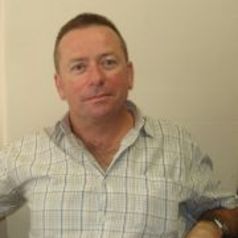
Michael Rafferty
Mike has undertaken research on work, labour markets, skills development, occupational health and safety, and financial aspects of working life, including mortgage stress, superannuation and retirement. He has also written on the shifting of life course risks from employers and the state to workers and households and the growing role of financial markets in managing those risks. Previously, he was MBA Program Coordinator at the University of Wollongong. Mike holds a PhD in economics and has taught at universities in Australia and Europe.
Less ![]()

Michael Rees
Senior Lecturer in Sociology, Nottingham Trent University
Dr Michael Rees is a Senior Lecturer in Sociology and Course Leader for the MA Sociology.
Michael studied for his undergraduate degree in Sociology at the University of the West of England before pursuing a Masters degree in Methods of Social Research and a PhD in Sociology at the University of Kent. He has taught as a Visiting Lecturer at the University of Kent and the University of South Wales before becoming a Lecturer then Senior Lecturer in Sociology at the University of Wolverhampton. He joined Nottingham Trent University in 2022 as a Senior Lecturer in Sociology and course leader for the MA Sociology
Less ![]()
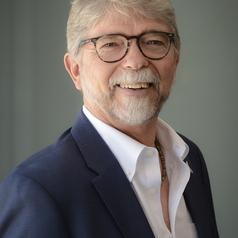
Michael Reid
Professor of Applied Physiology and Kinesiology, University of Florida
I am a professor and dean of the College of Health and Human Performance at the University of Florida. I am also a fellow of the American Physiological Society (FAPS) and the American College of Sports Medicine (FACSM). At present, I serve as consulting editor for Journal of Applied Physiology and sit on the editorial board of Antioxidants & Redox Signaling.
As an investigator, I have published over 120 scientific articles in the fields of biomechanics, motor control, muscle biology, and the mechanisms of fatigue. Our team is primarily recognized for my research on the redox mechanisms that limit performance in chronic disease and extreme environments. At present, we are part of a multisite research project to evaluate professional race car drivers during competition with the goal of improving performance and increasing driver safety. Relevant publications include: Reid MB and Lightfoot JT, Med Sci Sports Exercise 51: 2548-2562, 2019 and Reid, MB, Cells 11:899, 2022.
Less ![]()
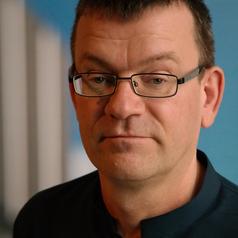
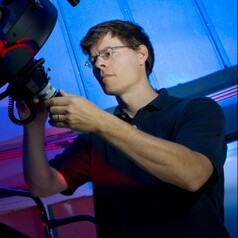
Michael Richmond
Professor of Astronomy and Physics, Rochester Institute of Technology
Michael Richmond teaches physics and astronomy courses at the Rochester Institute of Technology, runs the RIT Observatory, and studies variable celestial objects using optical telescopes. He often spends summers in Japan, working with the Tomo-e Gozen team at the University of Tokyo. Michael enjoys video games, programming, baseball, beer, and the novels of Hal Clement.
Education
Ph.D., Astronomy November 1992, University of California at Berkeley
Thesis: “The Supernova Rate in Starburst Galaxies”
Advisor: Alexei V. Filippenko
M.A., Astronomy May 1989, University of California at Berkeley
B.A., Astrophysics, Magna Cum Laude June 1986
Princeton University, Thesis: “An Application of Self-Consistent Field Theory to Close Binary Polytropes”
Advisor: Jeremiah P. Ostriker
Less ![]()

Michael Roberts
SEACAMS R&D Project Manager, Centre for Applied Marine Sciences, Bangor University
Born and raised on the Isle of Anglesey and after working as a general labourer in the civil engineering and building sector for fifteen years I graduated from Bangor University as a mature student in 2000 with a B.Sc. in Ocean Sciences. I completed my Ph.D. in 2006 and have been working in Bangor University's School of Ocean Sciences (SOS) since 2004. I am currently R&D Project Manager at the Centre for Applied Marine Sciences (CAMS) and have a background in palaeoenvironmental development (sea-level change) and marine geology. I currently specialise in seabed mapping and geoscience related research using multibeam sonar primarily associated with supporting the marine renewable energy sector in Wales.
Less ![]()
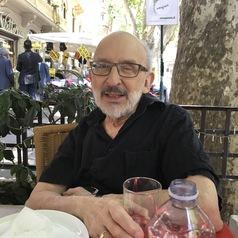
Michael Ross
Professor Emeritus of English and Cultural Studies, McMaster University
Michael L. Ross is a graduate of Harvard University (PhD 1966). He has taught nineteenth- and twentieth-century literature at Vassar College and McMaster University, where he is now emeritus professor of English and Cultural Studies. His previous book publications include: Storied Cities: Literary Imaginings of Florence, Venice and Rome (Greenwood 1994), Race Riots: Comedy and Ethnicity in Modern British Fiction (McGill-Queens UP 2006) and Designing Fictions: Literature Confronts Advertising (McGill-Queens UP 2015). His most recent book, Words in Collision: Multilingualism in English-Language Fiction, will be published by McGill-Queens University Press in April of 2023. He has also published numerous articles on writers such as Henry James, D.H. Lawrence, and Chimamanda Ngozi Adichie.
Less ![]()
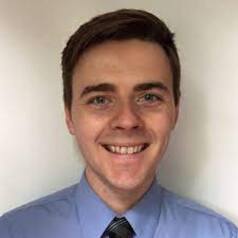
Michael Rudloff
MD-Ph.D. Candidate in Molecular Pathology and Immunology, Vanderbilt University
Michael grew up in the historic city of Williamsburg, Virginia and first dabbled in research at James Madison University where he analyzed the structure and function of mutated proteins implicated in human disease. After earning a B.S. in Biology and a minor in Biochemistry from JMU, Michael moved to the busy D.C. suburbs where he dove into the world of cancer research and immunotherapy at the National Institutes of Health as a postbaccalaureate research fellow. Michael matriculated to the Medical Scientist Training Program at Vanderbilt and to the lab of Dr. Mary Philip. In the future, Michael hopes to work in clinic to treat patients with cancer and operate a research lab to learn more about how we can harness our immune system to treat disease.
Less ![]()
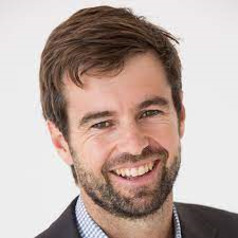
Michael Ryan
Teaching Fellow in Economics, University of Waikato
Michael's current research focuses on the causes and consequences of economic uncertainty.
Less ![]()

Michael S. Jaffee
Vice chair, Department of Neurology, University of Florida
Michael S. Jaffee, MD, is the Vice-Chair of Neurology at the University of Florida, where he joined the faculty in 2016. Prior to his current position, he was an associate professor of Neurology and Psychiatry at the University of Virginia, where he served as the inaugural clinical director of the Brain Injury and Sports Concussion Institute and director of the neurology sleep service. He graduated from the University of Virginia School of Medicine in 1992 and completed a combined residency in neurology and psychiatry at the San Antonio Uniformed Services Health Education Consortium in San Antonio in 1998. He later went on to complete a sleep medicine fellowship there in 2011.
Dr. Jaffee is board certified in neurology, psychiatry, sleep medicine and brain injury medicine. He has additional certifications in behavioral neurology and neuropsychiatry, as well as neural repair and rehabilitation.
His 21-year Air Force career included wartime service as the chief of the medical staff for the largest U.S. military hospital in Iraq and service as the U.S. Air Force Surgeon General neurology consultant. He served as the U.S. Department of Defense liaison to two White House-appointed panels of the Defense Health Board, and as the national director of the Defense and Veterans Brain Injury Center, where he managed a network of 18 sites leading to the publication of over 100 peer-reviewed articles and paved the way for research in the deployed combat area. Dr. Jaffee helped develop seminal clinical practice guidelines and tools for the management of traumatic brain injury. He has represented the Department of Defense with congressional testimony. He has served as a consultant to the Institute of Medicine, the North Atlantic Treaty Organization, the National Institutes of Health and the Department of Labor.
Dr. Jaffee retired from the Air Force in 2013 at the rank of colonel. Now at UF, he continues to serve as a national and federal subject matter expert and serves as chair of the Peer Reviewed Alzheimer’s Research Program as part of the Congressionally Directed Medical Research Program. He also is the senior neurologist serving on the American Board of Physical Medicine and Rehabilitation national Brain Injury Medicine board examination committee.
Dr. Jaffee has dedicated a significant part of his career to developing innovative educational and research collaborations between the Department of Defense, federal agencies, academic institutions and other stakeholders, including the National Football League and the Alzheimer’s Association.
Less ![]()

Michael Sam
Associate Professor of Physical Education, Sport and Exercise Sciences, University of Otago
Dr Michael Sam is an Associate Professor and co-director of the NZ Centre for Sport Policy and Politics. His background is in recreation, having gained much of his teaching/research interests from working at both the municipal and provincial levels of government in Manitoba, Canada. Mike serves on the editorial boards of the International Journal of Sport Policy and Politics, the International Review for the Sociology of Sport, and the International Journal of Sport Management and Marketing. He is also the President for the International Sociology of Sport Association (ISSA), a charitable incorporated organisation comprising 300 members across 50 countries (https://www.issa1965.org).
Less ![]()
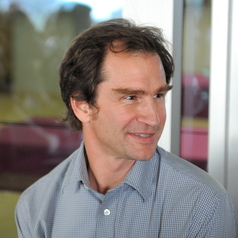
Michael Selgelid
Professor Michael Selgelid is Director of the Centre for Human Bioethics, and the World Health Organization (WHO) Collaborating Centre for Bioethics therein, at Monash University in Melbourne, Australia. He is a member of the Board of Directors of the International Association of Bioethics and serves on the Ethics Review Board of Médecins Sans Frontières. Since 2014 he has served as an Advisor to the WHO Emergency Committee that led to Ebola being declared a Public Health Emergency of International Concern. His main research focus is public health ethics—with emphasis on ethical issues associated with infectious disease. He edits a book series in Public Health Ethics Analysis for Springer and a book series in Practical Ethics and Public Policy for ANU Press. He is Co-Editor of Monash Bioethics Review and an Associate Editor of Journal of Medical Ethics. Michael earned a BS in Biomedical Engineering from Duke University; and a PhD in Philosophy from the University of California, San Diego.
Less ![]()

Michael Siebert
Lecturer in Architecture, School of Architecture, Design and Built Environment, Nottingham Trent University
Dr Mike Siebert is a lecturer at Nottingham Trent University and has recently published his book ‘Applying a Systems Thinking Approach to the Construction Industry’ (https://www.linkedin.com/in/dr-michael-siebert-03a30116 ) where he suggests how a number of interventions could benefit the housing industry in particular in its transition to Net Zero. His research into the stark realities behind retrofitting our nation’s homes has led him to infrared fabric as the only viably scalable technical solution yet to be proposed.
Less ![]()

Michael Spoelma
PhD Student, UNSW Sydney
I am a PhD student and research officer at the University of New South Wales and the Black Dog Institute in Sydney, Australia. My research examines treatments for bipolar disorder, applied machine learning, and digital interventions for mental health disorders.
Less ![]()
- Market Data





















